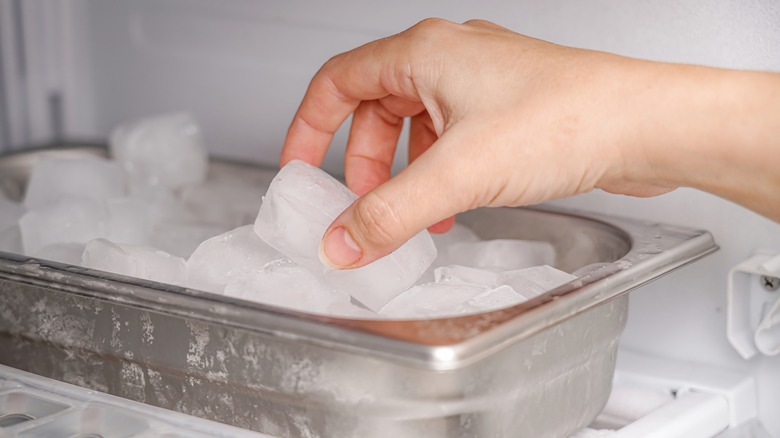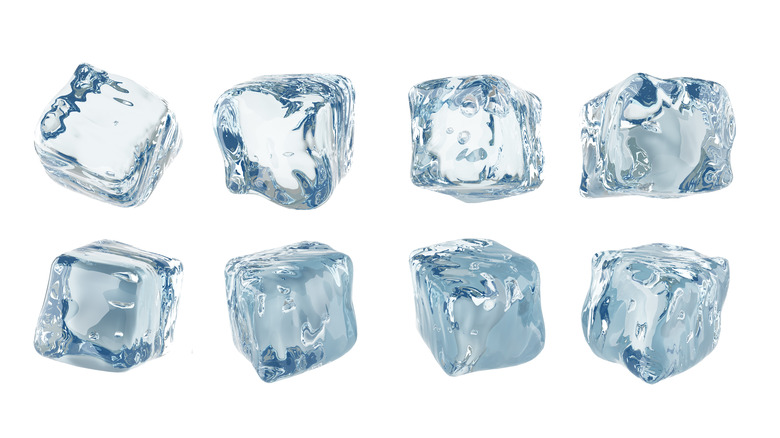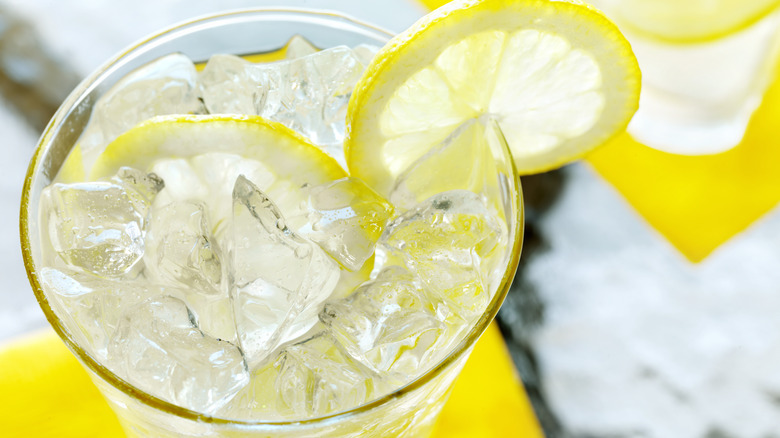How Long It Actually Takes For Ice To Freeze
If you're holding a drink that's best served chilled and have run out of ice, waiting for your freezer to make some more can feel like an eternity. Short of getting some pre-made ice cubes from the store, if that is even an option, you're stuck either waiting for a couple of hours or sucking it up and drinking your beverage tepid. Running out of ice is bad enough, and it can become a downright mood-killer if it happens at a get-together. You want to be well-stocked before your guests arrive, which means making multiple batches of ice.
While a dedicated ice-maker will almost always be faster, there are a few hacks you can use to speed up the process in your freezer. Freezing is influenced by several factors, including the material of your ice tray and the size of the ice cubes you're making. Knowing exactly how long it takes ice to freeze can help you plan better and ensure those glasses remain frosty.
Factors that affect freezing time
Water freezes at 32 degrees Fahrenheit, so your freezer needs to be at least that cold in order to make ice, and lowering the temperature further will work even better. The first important factor to keep in mind is how that cold temperature is transmitted to the water as soon as possible. Since metal is a good conductor of heat (and, therefore, equally good at dispersing it), an ice tray made of metal will be more efficient at making ice than those made of plastic or silicone. The surface area also plays a crucial role, so the same volume of water, divided into smaller cubes, pellets, or what have you, will freeze faster than if you tried to freeze it all together in one large block. Though you might not technically be freezing it into a single block, if you're stacking too many trays together, the cooling efficiency will be compromised, so try to spread them out as much as possible.
There are other factors that could be slowing down your ice-making without you realizing it, as well. Minerals dissolved in water, for spring water for example, tend to lower the freezing point, which works well when you're using the salted water ice bucket hack to chill wine quickly. However, for making ice cubes, try using purified water, and it might save you some time.
How to speed up ice making and other cool(ing) tricks
A regular plastic ice tray for 12 cubes can take between three and four hours to freeze completely. For those times when you know you're going to need a large amount of ice in advance — say for a party — it's a good idea to set your freezer's temperature to the coldest setting several hours prior. This will speed up the freezing process and allow you to freeze multiple ice trays more quickly. Lowering the temperature setting also works with ice makers.
Another neat trick is to leverage the peculiar Mpemba effect, which makes hot water freeze faster than room temperature or cold water. The reason behind it has mystified scientists for centuries and continues to be a debated topic today. But that shouldn't stop you from using it to enjoy your favorite drinks by making designer ice cubes for cocktails for your next social gathering.
Ultimately, the best way to make ice quickly is to use metal trays that favor smaller ice cubes while keeping your freezer as cold as possible. You may be able to bring the freezing time to under three hours with these strategies. However, an ice machine will invariably do the job faster than a freezer since it is a specialized appliance.


